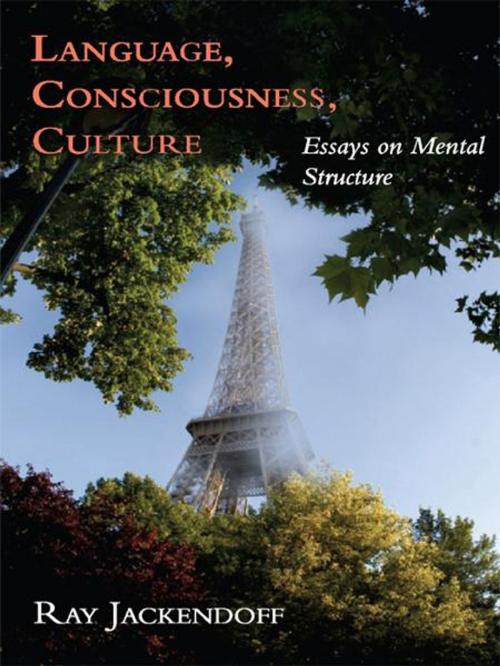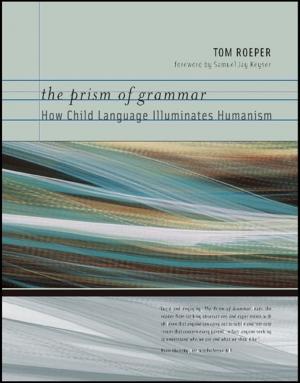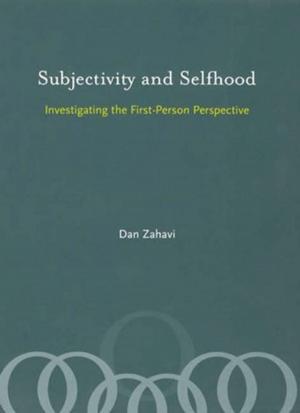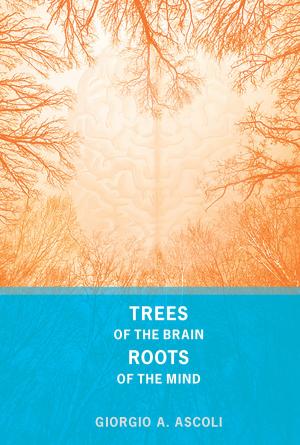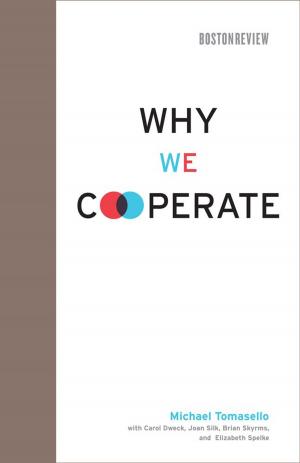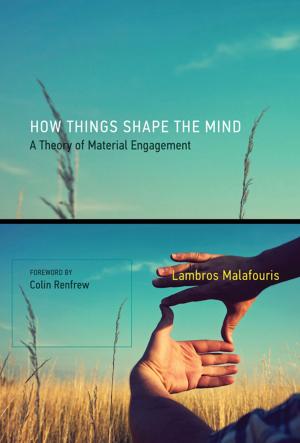Language, Consciousness, Culture
Essays on Mental Structure
Nonfiction, Reference & Language, Language Arts, Linguistics, Health & Well Being, Psychology, Cognitive Psychology| Author: | Ray S. Jackendoff | ISBN: | 9780262303644 |
| Publisher: | The MIT Press | Publication: | January 23, 2009 |
| Imprint: | A Bradford Book | Language: | English |
| Author: | Ray S. Jackendoff |
| ISBN: | 9780262303644 |
| Publisher: | The MIT Press |
| Publication: | January 23, 2009 |
| Imprint: | A Bradford Book |
| Language: | English |
An integrative approach to human cognition that encompasses the domains of language, consciousness, action, social cognition, and theory of mind that will foster cross-disciplinary conversation among linguists, philosophers, psycholinguists, neuroscientists, cognitive anthropologists, and evolutionary psychologists.
Ray Jackendoff's Language, Consciousness, Culture represents a breakthrough in developing an integrated theory of human cognition. It will be of interest to a broad spectrum of cognitive scientists, including linguists, philosophers, psycholinguists, neuroscientists, cognitive anthropologists, and evolutionary psychologists.
Jackendoff argues that linguistics has become isolated from the other cognitive sciences at least partly because of the syntax-based architecture assumed by mainstream generative grammar. He proposes an alternative parallel architecture for the language faculty that permits a greater internal integration of the components of language and connects far more naturally to such larger issues in cognitive neuroscience as language processing, the connection of language to vision, and the evolution of language.
Extending this approach beyond the language capacity, Jackendoff proposes sharper criteria for a satisfactory theory of consciousness, examines the structure of complex everyday actions, and investigates the concepts involved in an individual's grasp of society and culture. Each of these domains is used to reflect back on the question of what is unique about human language and what follows from more general properties of the mind.
Language, Consciousness, Culture extends Jackendoff's pioneering theory of conceptual semantics to two of the most important domains of human thought: social cognition and theory of mind. Jackendoff's formal framework allows him to draw new connections among a large variety of literatures and to uncover new distinctions and generalizations not previously recognized. The breadth of the approach will foster cross-disciplinary conversation; the vision is to develop a richer understanding of human nature.
An integrative approach to human cognition that encompasses the domains of language, consciousness, action, social cognition, and theory of mind that will foster cross-disciplinary conversation among linguists, philosophers, psycholinguists, neuroscientists, cognitive anthropologists, and evolutionary psychologists.
Ray Jackendoff's Language, Consciousness, Culture represents a breakthrough in developing an integrated theory of human cognition. It will be of interest to a broad spectrum of cognitive scientists, including linguists, philosophers, psycholinguists, neuroscientists, cognitive anthropologists, and evolutionary psychologists.
Jackendoff argues that linguistics has become isolated from the other cognitive sciences at least partly because of the syntax-based architecture assumed by mainstream generative grammar. He proposes an alternative parallel architecture for the language faculty that permits a greater internal integration of the components of language and connects far more naturally to such larger issues in cognitive neuroscience as language processing, the connection of language to vision, and the evolution of language.
Extending this approach beyond the language capacity, Jackendoff proposes sharper criteria for a satisfactory theory of consciousness, examines the structure of complex everyday actions, and investigates the concepts involved in an individual's grasp of society and culture. Each of these domains is used to reflect back on the question of what is unique about human language and what follows from more general properties of the mind.
Language, Consciousness, Culture extends Jackendoff's pioneering theory of conceptual semantics to two of the most important domains of human thought: social cognition and theory of mind. Jackendoff's formal framework allows him to draw new connections among a large variety of literatures and to uncover new distinctions and generalizations not previously recognized. The breadth of the approach will foster cross-disciplinary conversation; the vision is to develop a richer understanding of human nature.
